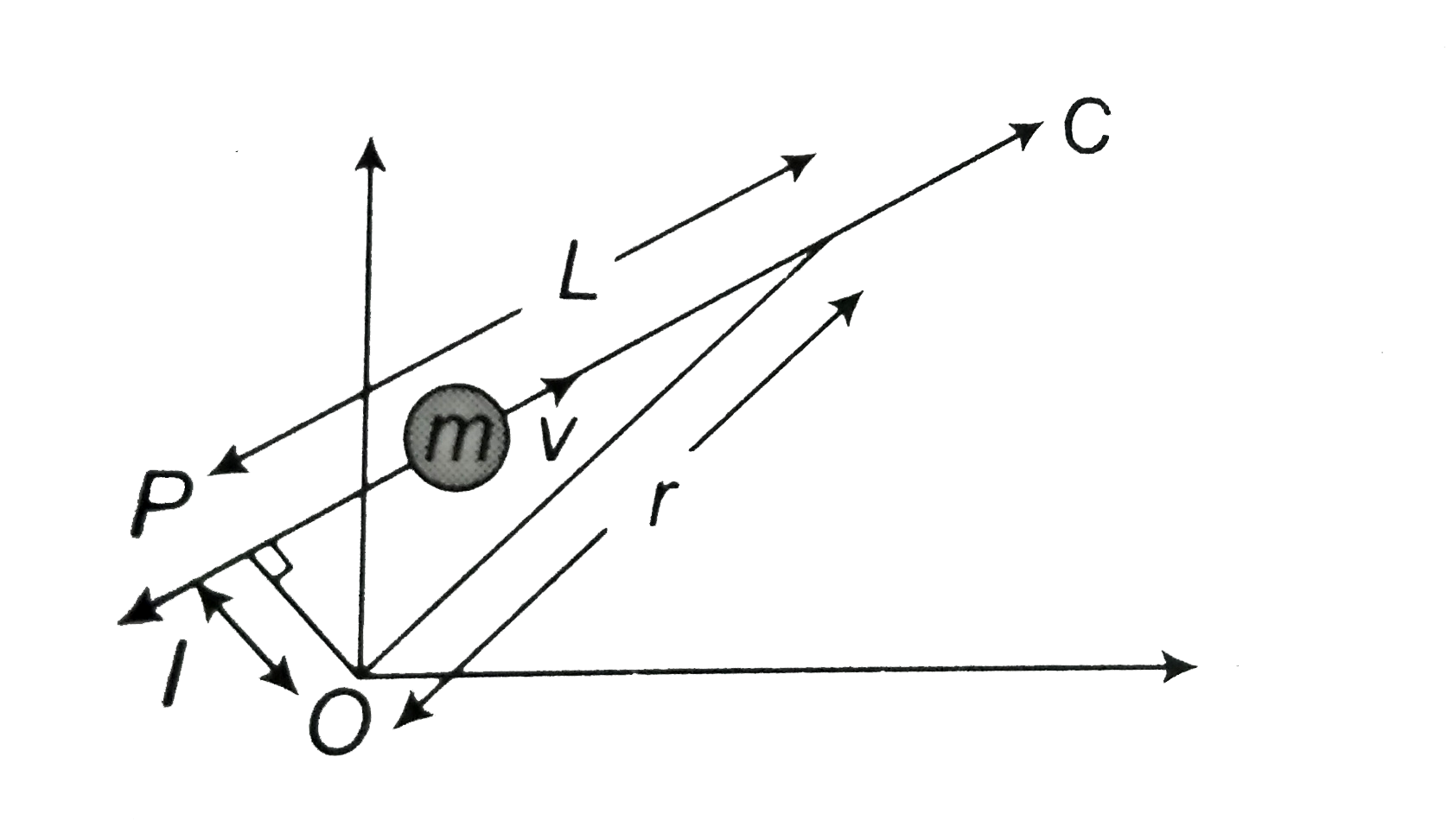Centripetal acceleration of a particle of mass m moving in a circle of radius r is 4/r2. What is the angular momentum of the particle ?
4 m/r
4m/√r
2m√r
2 m/r
The correct Answer is:C
To find the angular momentum of a particle moving in a circle with a given centripetal acceleration, we can follow these steps:
Step 1: Understand the relationship between centripetal acceleration and speed
The centripetal acceleration ac of a particle moving in a circle is given by the formula:
ac=v2r
where v is the linear speed of the particle and r is the radius of the circle.
Step 2: Set up the equation using the given centripetal acceleration
We are given that the centripetal acceleration is:
ac=4r2
Setting this equal to the formula for centripetal acceleration, we have:
v2r=4r2
Step 3: Solve for the speed v
To find v2, we can rearrange the equation:
v2=4r2⋅r
This simplifies to:
v2=4r
Taking the square root of both sides gives us:
v=√4r=2√r
Step 4: Calculate the angular velocity ω
The relationship between linear speed v and angular velocity ω is given by:
v=rω
Rearranging this gives:
ω=vr
Substituting the expression for v:
ω=2/√rr=2r√r=2r3/2
Step 5: Find the moment of inertia I
For a point mass m at a distance r from the axis of rotation, the moment of inertia I is given by:
I=mr2
Step 6: Calculate the angular momentum L
The angular momentum L of a particle is given by the formula:
L=Iω
Substituting the expressions for I and ω:
L=(mr2)(2r3/2)
This simplifies to:
L=2mr2r3/2=2mr1/2
Final Answer
Thus, the angular momentum of the particle is:
L=2m√r
---
The centripetal acceleration ac of a particle moving in a circle is given by the formula:
ac=v2r
where v is the linear speed of the particle and r is the radius of the circle.
We are given that the centripetal acceleration is:
ac=4r2
Setting this equal to the formula for centripetal acceleration, we have:
v2r=4r2
To find v2, we can rearrange the equation:
v2=4r2⋅r
This simplifies to:
v2=4r
Taking the square root of both sides gives us:
v=√4r=2√r
The relationship between linear speed v and angular velocity ω is given by:
v=rω
Rearranging this gives:
ω=vr
Substituting the expression for v:
ω=2/√rr=2r√r=2r3/2
For a point mass m at a distance r from the axis of rotation, the moment of inertia I is given by:
I=mr2
The angular momentum L of a particle is given by the formula:
L=Iω
Substituting the expressions for I and ω:
L=(mr2)(2r3/2)
This simplifies to:
L=2mr2r3/2=2mr1/2
Thus, the angular momentum of the particle is:
L=2m√r
Similar Questions
A particle of mass 1kg is moving about a circle of radius 1m with a speed of 1m/s. Calculate the angular momentum of the particle.
View SolutionA particle of mass 1kg is moving about a circle of radius 1m with a speed of 1m/s. Calculate the angular momentum of the particle.
View SolutionA particle of mass m moves along line PC with velocity v as shown. What is the angular momentum of the particle about O?

View SolutionA particle of mass m is moving on a circular path of radius r with uniform speed v , rate of change of linear momentum is
View SolutionA particle is rotating in circle with uniform speed as shown. The angular momentum of the particle w.r.t. origin is :-

View SolutionWrite the formula of centripetal acceleration of a particle moving on a circular path in terms of the angular velocity.
View SolutionIf a particle of mass m is moving in a horizontal circle of radius r with a centripetal force (−1/r2) , the total energy is
View SolutionA particle of mass M is revolving along a circule of radius R and nother particle of mass m is recolving in a circle of radius r. If time periods of both particles are same, then the ratio of their angular velocities is
View SolutionA particle of mass 'm' is moving on a circular path of radius 'r' with uniform speed 'v'. Rate of change of linear momentum is
View SolutionCalculate the magnitude and direction of total linear acceleration of a particle moving in a circle of radius 0.4 m having an instantaneous angular velocity of 2rads−1 and angular acceleration 5"rad"s^(-2)
View Solution

